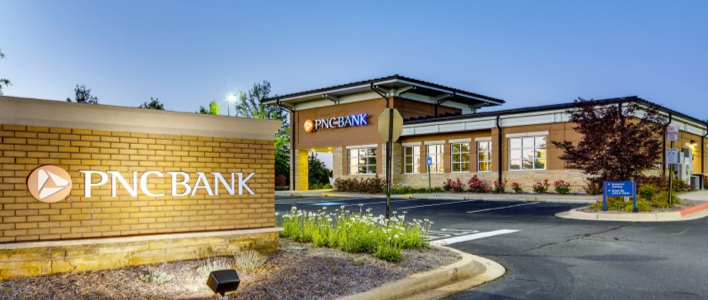Hospital and insurance executives agree that an automated medical claims and payment process could reduce the costs of health care in the United States and benefit patients, according to the e-Health Study released today by The PNC Financial Services Group, Inc. (NYSE: PNC), one of the nation's leading providers of electronic financial solutions to the health care industry. The study was based on telephone interviews conducted with 150 executives from U.S. hospitals, health systems and insurance organizations from January to February 2006.
(Photo: http://www.newscom.com/cgi-bin/prnh/20060322/CLW003 ) (Logo: http://www.newscom.com/cgi-bin/prnh/20000307/PHTU015 )
According to the survey results, 90 percent of hospital executives and 86 percent of insurance executives said that making the claims remittance process more efficient industry-wide would help slow the rising cost of health care. Nine out of 10 hospital executives indicate that savings resulting from automation would be used to improve patient care. Executives interviewed also said that federal standards for payment and information also could help in reducing health care costs.
"Health care executives who have adopted automated processes reported significantly higher levels of patient satisfaction resulting from improved coordination of benefits between the hospitals and the insurance carriers," said Paula Fryland, manager of PNC's national health care group. "While the majority of respondents said their current process is highly efficient, the study found there are many opportunities for hospitals and insurance companies to improve these processes."
Industry cost savings/improved patient care
Other highlights of the PNC e-Health Study include:
- Half of hospital executives and four out of 10 insurance executives
said their organizations could save at least $1 million and as much as
$10 million a year if their billing and payment processes were more
efficient.
- Seventy-five percent of hospital executives would pass savings on
directly to patients and two-thirds thought they would use savings to
provide care to the uninsured.
Billing and payment problems cited
Study results also include:
- 91 percent of hospital executives surveyed say they must resubmit
claims one or more times before they are paid. One out of five said
they must resubmit claims over six times, and 5 percent of all hospital
claims are never paid.
- Insurance executives estimate they need to go back to the health care
providers an average of six times for information necessary to pay a
claim.
- Patient ineligibility is most often stated by both hospital
(84 percent) and insurance executives (80 percent) as the reason for
delay and denial of claims.
"While there have been numerous anecdotes about the barriers that currently hinder the exchange of information and payments between hospitals and insurance companies, this is the first industry-wide study of its kind that sought to identify the gaps and to begin to identify solutions," said Fryland.
Potential patient benefits
The PNC e-Health Study showed that hospitals would reap the greatest financial benefit from adopting Electronic Data Interchange (EDI) and Electronic Funds Transfer (EFT) standards. Among those hospital executives who reported already having EDI/EFT systems in place:
- 84 percent agreed or strongly agreed that their cash flow improved.
- 80 percent experienced significant cost savings.
- Roughly six out of 10 reported reductions in their organization's bad
debts.
Among insurance executives who said they already had EDI/EFT systems in
place:
- Nine out of 10 cited a decrease in errors on balances owed.
- Nine in 10 noted fewer billing "hassles" related to coding and lost
claims.
Industry-wide Barriers
When asked why they have not automated the claims remittance process, hospital executives point to requirement inconsistencies from multiple insurance companies, other demands for resources and electronic claims forms that provide insufficient data compared to paper-based forms. When asked the same question, insurance executives identify infrastructure cost, lack of financial incentives and difficulty quantifying a return on the investment as their greatest barriers to adoption.
Potential Solutions
When asked about how to bridge the gap between hospitals and insurance companies regarding payment processes, only half of insurance company executives surveyed were aware that some financial institutions provide integrated payment remittance services for health care claims.
"The financial services industry can play an important role in bringing the health care industry into the 21st century, and we only now are beginning to see a convergence of health care remittance processing and financial services into a sector known as Medical Banking," said Fryland. "As health care becomes more consumer-focused and transparent, it will accelerate the urgent need for process improvements through EDI and EFT."
The PNC e-Health Study was conducted by the independent research firm, Chadwick Martin Bailey, based in Boston, Massachusetts. A PNC e-Health Study media kit containing background information, survey highlights, topline findings, graphics and audio expert commentary is available through PNC's website at http://www.pnc.com/pncnews/.
The PNC Financial Services Group, Inc. is one of the nation's largest diversified financial services organizations providing consumer and business banking; specialized services for corporations and government entities, including corporate banking, real estate finance and asset-based lending; wealth management; asset management and global fund services.
This report has been prepared for general informational purposes only and is not intended as specific advice or recommendations. Information has been gathered from third-party sources and has not been independently verified or accepted by The PNC Financial Services Group, Inc. The PNC Financial Services Group, Inc. makes no representations or warranties as to the accuracy or completeness of the information, assumptions, analyses or conclusions presented in the report. The PNC Financial Services Group, Inc. cannot be held responsible for any errors or misrepresentations contained in the report or in the information gathered from third-party sources. Any reliance upon the information provided in the report is solely and exclusively at your own risk.
Photo: http://www.newscom.com/cgi-bin/prnh/20060322/CLW003
http://www.newscom.com/cgi-bin/prnh/20000307/PHTU015
AP Archive: http://photoarchive.ap.org/
PRN Photo Desk, photodesk@prnewswire.com
SOURCE: The PNC Financial Services Group, Inc.
CONTACT: Amy Vargo of The PNC Financial Services Group, Inc.,
+1-412-762-1535, or amy.vargo@pnc.com ; or Constance Hubbell Clapp of
The Hubbell Group, Inc., +1-781-878-8882, or hubbell@hubbellgroup.com
Web site: http://www.pnc.com/
http://www.pnc.com/pncnews
Company News On-Call: http://www.prnewswire.com/comp/701257.html




